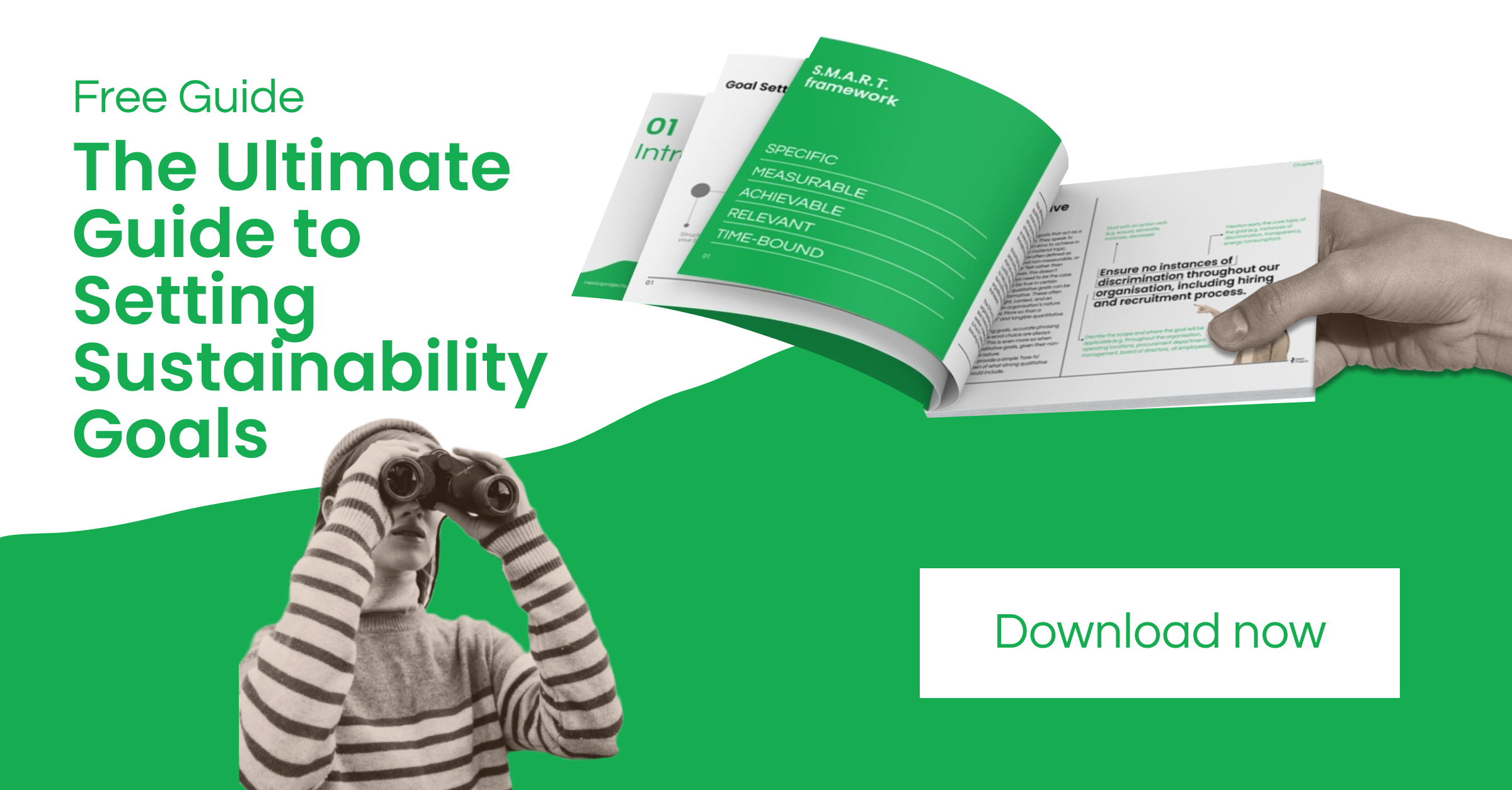Four Questions You Should Ask Yourself Whilst Setting Sustainability Targets

Nexio Projects is happy to welcome this guest blog post by Marian Stellingwerf. She is a consultant at &samhoud specialising in organisational, cultural and behavioural change. &samhoud helps organisations in solving their strategic challenges through behaviour. In their 30-year experience, they observed that leaders often look for solutions in structures, systems and processes. However, the magical question is: what behaviour is needed to increase (business) opportunities and mitigate risk? Marian contributes by helping organisations with defining their purpose, (sustainability) ambitions and strategy and truly live up to this, creating value for employees, customers & society.
Our partner Nexio Projects wrote a great and easy-to-read overview of how to set sustainability goals. It is valuable to also look through a behavioural lens to ensure a successful implementation.
KPIs are important drivers of behaviour. Hence, they should grasp both the intended and unintended consequences of people's actions. At the same time, it’s important to be aware of preferences and psychological pitfalls when defining and steering KPIs.
In this short blog, &samhoud shares four questions you should ask yourself whilst setting and steering on sustainability KPIs.
.png?width=906&height=528&name=Figure%201.%204%20questions%20(1).png)
1) Do you balance quantitative and qualitative goals?
People’s attention is naturally drawn to quantitative goals. These are concrete, easy to remember and to act upon.
We still see the belief “if it can’t be measured, it doesn’t exist”. However, quantitative goals can be also very single-focused, representing complexity in an oversimplified way.
This can easily cause tunnel vision that draws your attention away from the bigger picture. Therefore progress on quantitative goals does not always reflect the real progress you make as an organisation.
First of all, our advice is to set qualitative goals besides your quantitative ones. On top of that, we suggest balancing attention between quantitative and qualitative goals when evaluating progress.
2) What is the effect of KPIs on the intrinsic motivation of employees?
When KPIs only state a number to hit, the effect on employees' motivation can be counter-productive. In fact, it results as too far removed from purpose and the individual contribution one can have.
Therefore, make sure to explain well how specific KPIs relate to the ultimate goal you're trying to achieve.
Additionally, please be aware that too ambitious KPIs can demotivate people if they are not given the tools they need to perform well. Of course, KPIs must be challenging but be aware of what is needed to achieve the desired results and the challenges you might encounter.
3) What dilemmas will employees encounter due to KPIs?
Assigning to one person contradictory KPIs can cause dilemmas and result in confusion and frustration. Ultimately, it translates into not leading to the desired outcome. Moreover, to ensure sustainability KPIs do not end up on the back-burner of your managers and employees, make them as important as traditional KPIs on (financial) performance and communicate well about it.
4) Are we having the right dialogues to steer our progress?
Often KPIs are put in a dashboard. Working with a dashboard can be great since it provides you with a compact oversight of your progress. The quality of steering, however, lies in having a constant and good dialogue around the presented results in this dashboard. This joint reflection deepens the understanding of the figures and provides valuable insights to act in an effective way.
Success factors for a good dialogue are:
a) Fundament: Start from a basis of trust and togetherness. Spend time creating a common understanding of what your sustainability targets mean and how to use the dashboard in steering.
b) Understand: Ask open questions without judgment and try to understand the causes of the progress. Do not only focus on the red or green results but spend time and attention to truly understand the different elements on the dashboard.
c) Interpret: Give constructive feedback and share and discuss ideas for improvement.
Implementing the above cannot be done overnight. It’s a process to develop. Having the right sustainability KPIs and – especially having the right kind of dialogues about these KPIs is something you will grow in. That requires experimenting, reflecting, and adjusting where needed. Let’s get started!
